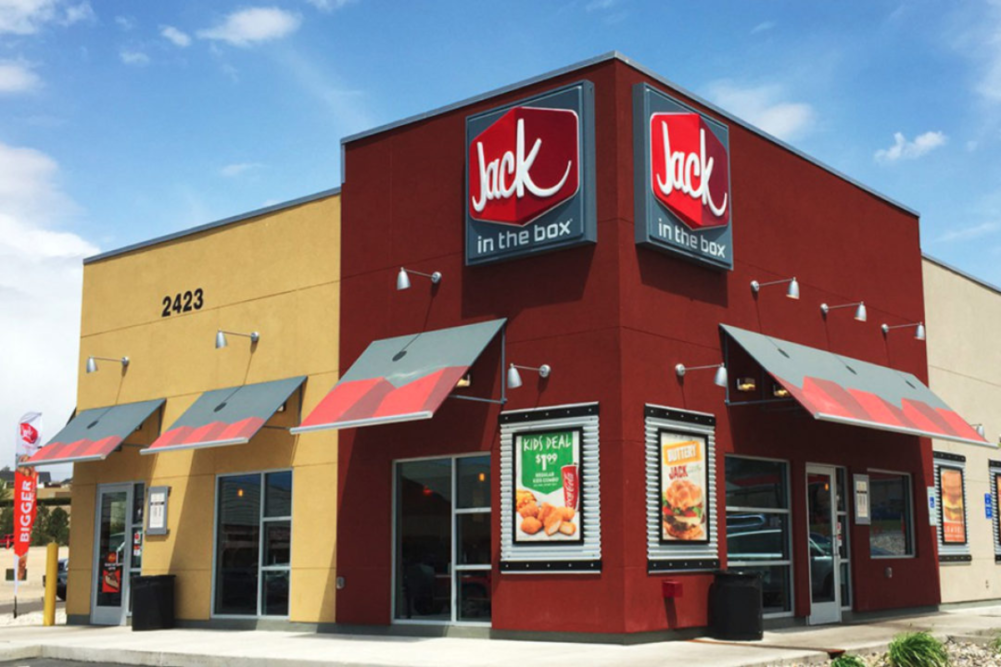SAN DIEGO — Add-on and upsell items helped Jack in the Box Inc. weather pandemic-related disruptions in the first quarter. The company delivered positive same-store sales growth, bolstered by strength in menu platforms like burgers and tacos.
Net earnings for the first quarter ended Jan. 23 decreased to $39.9 million, equal to $1.85 per share on the common stock, compared with $50.9 million, or $2.21 per share, in the same period a year ago. Systemwide sales increased 1.8% to $344.7 million from $338.5 million. Same-store sales were up 1.2%, with decreases in traffic partially offset by increases in average check.
Jack in the Box is using pricing as one lever to manage through inflationary and wage pressure, raising prices by 5.5% year-over-year within its company-operated stores late in the quarter.
“Both our company operators and franchisees are seeing that their guests remain quite loyal, even with our increased pricing activity, which is a good sign,” said Darin S. Harris, chief executive officer at Jack in the Box, during a Feb. 23 conference call with financial analysts.
With restaurants across the industry aggressively raising prices, executives at Jack in the Box are working to determine what “value” means in an inflationary environment, added Timothy E. Mullany, executive vice president and chief financial officer at the San Diego-based company.
“The part we’re all trying to get our heads around now is, what is value?” he said. “Is it $5? Is it $6? Is it $7? How do we continue to improve our pricing power? We have a very strong promotional offering with add-on and upsell opportunities… It’s working for us as a competitive differentiation in the industry.”
He pointed to the company’s ability to sell value and premium items concurrently and offer upsell and add-on platforms as key growth drivers. From a product and promotion standpoint, Jack in the Box’s cheddar loaded cheeseburger and ultimate burger platform led the way in terms of sales contribution.
“I would also note the strong performance from our tiny taco big box platform, a great example of packaging and platform innovation using current items,” Mr. Harris said. “It was just another way to utilize our add-on strategy that positively impacts ticket beyond just raising price.”
Jack in the Box signed 26 franchise deals for a total of 98 units in the first quarter — the highest level of restaurant commitments in the company’s history — bringing the total number of stores in the pipeline to 201. It saw a net decline of 10 restaurants in the quarter with 12 locations closing and two new locations opening.
The company also is making progress toward closing its acquisition of Del Taco, a Lake Forest, Calif.-based Mexican quick-service chain, which it agreed to purchase for approximately $575 million in December. The two restaurant chains are beginning the process of integrating their teams, Mr. Harris said.
“Adding Del Taco is an opportunity to scale our business, improve profitability and share best practices while strengthening our capital structure,” he said. “This transaction is particularly critical in the current environment as it will provide us operating and financial synergies that will help mitigate some of the macroeconomic headwinds we are facing.”





